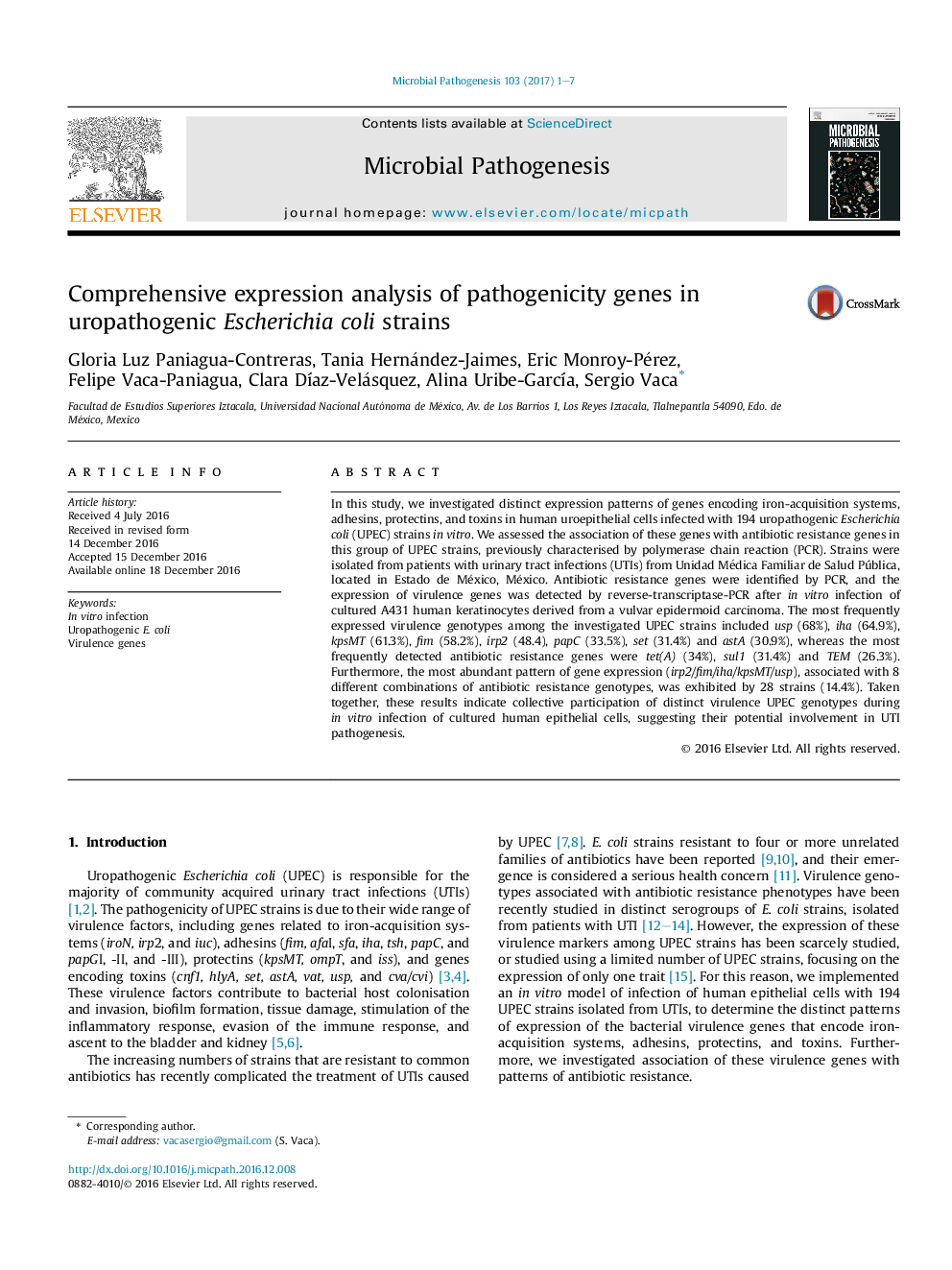| Article ID | Journal | Published Year | Pages | File Type |
|---|---|---|---|---|
| 5673768 | Microbial Pathogenesis | 2017 | 7 Pages |
â¢The main contribution of our paper is the elucidation of distinct expression patterns of virulence markers in human epithelial cells infected with antibiotic resistant uropathogenic E. coli (UPEC) strains isolated from patients with urinary tract infections.â¢We believe that this contribution is theoretically and practically relevant because our results provided novel insight into the associations between virulence-gene expression and antibiotic resistance genotypes in 194 UPEC strains.
In this study, we investigated distinct expression patterns of genes encoding iron-acquisition systems, adhesins, protectins, and toxins in human uroepithelial cells infected with 194 uropathogenic Escherichia coli (UPEC) strains in vitro. We assessed the association of these genes with antibiotic resistance genes in this group of UPEC strains, previously characterised by polymerase chain reaction (PCR). Strains were isolated from patients with urinary tract infections (UTIs) from Unidad Médica Familiar de Salud Pública, located in Estado de México, México. Antibiotic resistance genes were identified by PCR, and the expression of virulence genes was detected by reverse-transcriptase-PCR after in vitro infection of cultured A431 human keratinocytes derived from a vulvar epidermoid carcinoma. The most frequently expressed virulence genotypes among the investigated UPEC strains included usp (68%), iha (64.9%), kpsMT (61.3%), fim (58.2%), irp2 (48.4), papC (33.5%), set (31.4%) and astA (30.9%), whereas the most frequently detected antibiotic resistance genes were tet(A) (34%), sul1 (31.4%) and TEM (26.3%). Furthermore, the most abundant pattern of gene expression (irp2/fim/iha/kpsMT/usp), associated with 8 different combinations of antibiotic resistance genotypes, was exhibited by 28 strains (14.4%). Taken together, these results indicate collective participation of distinct virulence UPEC genotypes during in vitro infection of cultured human epithelial cells, suggesting their potential involvement in UTI pathogenesis.
